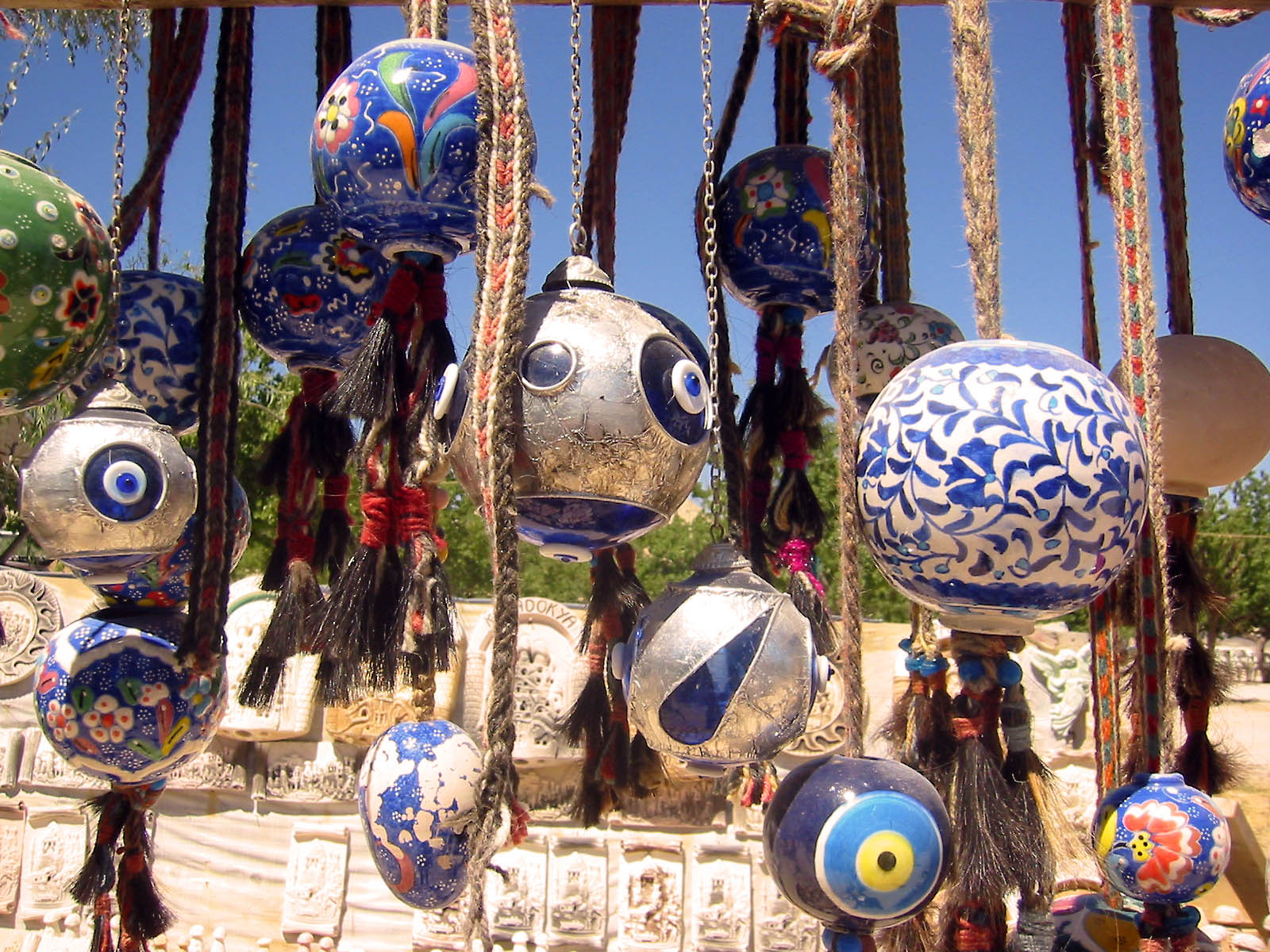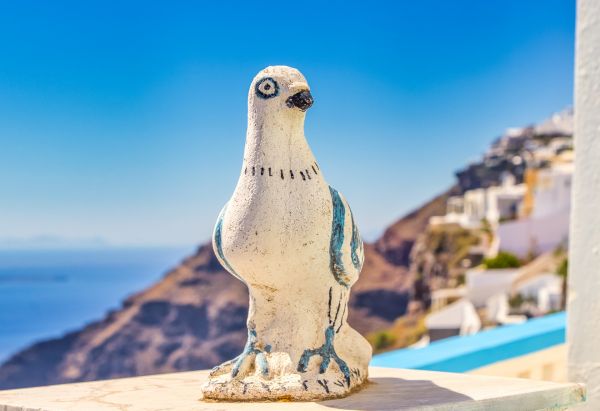1. Name Days, first and foremost
Did you know that many Greeks choose to celebrate their Name Day as well as their birthday, with a party or by taking friends out for a meal or some drinks? Most common Greek names are based on religious saints and on the days that a saint is celebrated in the church, anyone named after that saint celebrates his or her “onomastiki eorti”! Well, a good chance to celebrate twice!
2. Always take an Evil Eye amulet with you!
The evil eye amulet brings good luck and protects you from any curse that could otherwise have a negative effect on your life in general. It is found in homes and offices, on jewellery and keychains, and often over a baby’s crib. According to tradition, those with blue eyes (a genetic rarity in the Mediterranean area) are particularly able to give the curse to another person. For this reason, the evil eye talismans are often depicted as a blue eye.
3.  Beware with New Year cake
Beware with New Year cake
Vasilopita is generally eaten in Greece during the new year celebrations. This cake is named after Saint Basil (Agios Vasilis), whose Name Day is January 1. A coin is baked into the cake, and the person who gets the slice with the coin in it is believed to have good luck in the coming year... but be careful not to swallow it, or the year is not going to start in the best way possible!
4. Voting is a duty, not an option
Voting in Greece is mandatory, it is not something you can choose to take advantage or not. It says a lot about the civic engagement which permeates Greek culture, isn’t it?
5. Don’t wave your hand
Don’t wave your hand with an open palm, Greeks find this kind of salutation insulting and humiliating. “Mountza” is something like giving the middle finger. The open palm in someone’s face is offensive because it has the connotation of dirt (or even worse) on someone’s face. A gesture of disgrace which is meant to ridicule or show disapproval. In doubt, fist bump.

